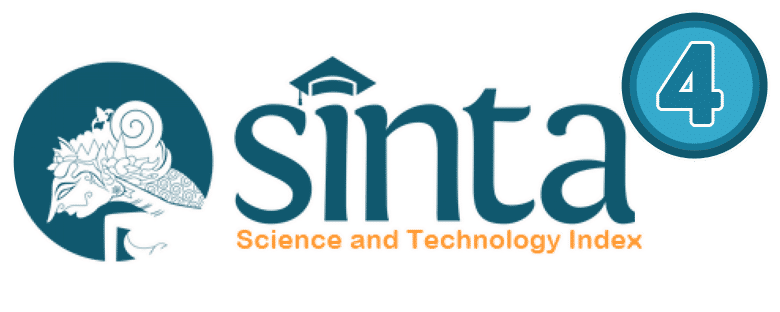The Effectiveness of OBE Worksheets in Improving Student Learning Outcomes in Educational Psychology Courses
DOI:
https://doi.org/10.24114/icp.v5i2.65900Keywords:
Electronic Worksheet, OBE, Learning Outcomes, Educational PsychologyAbstract
This study examines the effectiveness of structured OBE worksheets (LK) on the learning outcomes of students in the Educational Psychology course at the State University of Medan (UNIMED) in the 2024 academic year. A quasi-experimental design was applied by comparing two groups of students: those who used worksheets (N = 78) and those who did not (N = 78). The worksheet group consisted of students from the Mechanical Engineering Education classes A, B, and C, while the non-worksheet group included students from the Building Engineering Education classes A and C, and the Automotive Engineering Education class B. Final exam scores were analyzed using an independent samples t-test. The results showed a significant difference between the groups, with the worksheet group achieving a higher average score (M = 51.31) than the non-worksheet group (M = 45.87; t = 2.50, p = 0.014, p < 0.05), indicating a positive impact on conceptual understanding and academic performance. Additionally, data were collected from 670 students and 13 lecturers teaching Educational Psychology at UNIMED through closed and open-ended questionnaires. Descriptive analysis revealed that the majority of students (76.7%) and lecturers (77%) preferred printed worksheets. Students rated the visual appearance of the worksheets, outcome-based focus, clarity of language, and content as good, while faculty members valued the comprehensive structure, innovative teaching approach, and relevance to students' future professional needs. These results indicate the effectiveness of worksheets not only in cognitive outcomes but also in enhancing satisfaction and engagement. This study highlights the importance of integrating structured worksheets into pedagogical practices, particularly in technical education, to support holistic student development.References
Arief, M., et al. (2021). Upaya meningkatkan motivasi dan hasil belajar peserta didik pada pelajaran matematika melalui pembelajaran tutorial berbasis iSpring. Jurnal Ilmiah Mandala Education, 7(1). https://doi.org/10.36312/jime.v7i1.1658
Biggs, J., & Tang, C. (2011). Teaching for quality learning at university (4th ed.). McGraw-Hill Education.
Boentolo, D. R., et al. (2024). Peran guru memanfaatkan AI dalam membangun generasi unggul menuju Indonesia Emas 2045. Aletheia: Christian Educators Journal, 5(1), 42–48. https://doi.org/10.9744/aletheia.5.1.42-48
Dewi, L. A., et al. (2018). Buku suplemen berbasis Android sebagai media pembelajaran pada materi gelombang elektromagnetik untuk peserta didik SMA. Prosiding Seminar Nasional Fisika (E-Journal), 2018(1). https://doi.org/10.21009/03.snf2018.01.pe.01
Ginanjar, A. Y., & Akmal, R. (2020). Efektivitas lembar kerja untuk meningkatkan kemampuan literasi matematika mahasiswa PGSD. Jurnal Basicedu, 5(1), 239–246. https://doi.org/10.31004/basicedu.v5i1.655
Hastjarjo, T. D. (2014). Rancangan eksperimen acak. Buletin Psikologi, 22(2), 73. https://doi.org/10.22146/bpsi.11455
Haq, M., et al. (2023). Tantangan dan dampak transformasi pendidikan berbasis digital terhadap kualitas pembelajaran di sekolah dasar. Jurnal Pengajaran Sekolah Dasar, 2(2). https://doi.org/10.56855/jpsd.v2i2.865
Heriyadi, H., & Prahmana, R. C. I. (2020). Pengembangan lembar kegiatan siswa menggunakan pendekatan pendidikan matematika realistik. Aksioma: Jurnal Program Studi Pendidikan Matematika, 9(2). https://doi.org/10.24127/ajpm.v9i2.2782
Kember, D., & Leung, D. Y. P. (2005). The influence of active learning experiences on the development of graduate capabilities. Studies in Higher Education, 30(2), 155–170. https://doi.org/10.1080/03075070500043127
Lestari, L., & Muhroji, M. (2022). Pemahaman guru terhadap lembar kerja peserta didik berbasis HOTS di sekolah dasar. Jurnal Basicedu, 6(4), 6533–6539. https://doi.org/10.31004/basicedu.v6i4.3293
Prince, M. (2004). Does active learning work? A review of the research. Journal of Engineering Education, 93(3), 223–231. https://doi.org/10.1002/j.2168-9830.2004.tb00809.x
Putri, S. O. L. (2022). Analisis muatan berpikir kritis pada lembar kerja peserta didik kelas V tema 8. Scholastica Journal: Jurnal Pendidikan Sekolah Dasar dan Pendidikan Dasar (Kajian Teori dan Hasil Penelitian), 5(1). https://doi.org/10.31851/sj.v5i1.8021
Putri, U. N., Milfayetty, S., Rahmulyani, R., & Matondang, I. (2023). Analisis bahan ajar e-worksheet mata kuliah psikologi pendidikan Universitas Negeri Medan. Jurnal Penelitian Pendidikan, Psikologi dan Kesehatan (J-P3K), 4(3), 371–375. http://www.jurnalp3k.com/index.php/J-P3K/article/view/241
Putri, U. N., Mawaddah, S., Sari, A., & Syahputra, F. P. (2023). Development of a digital-based mental health module as an optimization of hybrid learning during the COVID-19 pandemic for students of the Guidance and Counseling Department at Universitas Negeri Medan. Proceedings of the 4th International Conference on Science Education in The Industrial Revolution 4.0 (ICONSEIR 2022). EAI. https://doi.org/10.4108/eai.24-11-2022.2332592
Qiptiah, M. (2023). Inovasi pendidikan pada perkembangan teknologi abad-21. OSF Preprints. https://doi.org/10.31237/osf.io/4a8wm
Rahkman, R., et al. (2023). Analisis penggunaan media pembelajaran berbasis IT terhadap motivasi belajar peserta didik. Jurnal Didika: Wahana Ilmiah Pendidikan Dasar, 9(2). https://doi.org/10.29408/didika.v9i2.24156
Siahaan, M. (2015). Pemanfaatan teknologi informasi dan komunikasi dalam pembelajaran: Peluang, tantangan, dan harapan. Jurnal Teknodik, 19(3). https://doi.org/10.32550/teknodik.v19i3.173
Downloads
Published
How to Cite
Issue
Section
License
Copyright (c) 2025 Utami Nurhafsari Putri, Sri Milfayetty, Nani Barorah Nasution, Suri Handayani, Nuraini

This work is licensed under a Creative Commons Attribution-ShareAlike 4.0 International License.
Authors who publish with this journal agree to the following terms:
- Authors retain copyright and grant the journal right of first publication with the work simultaneously licensed under a Creative Commons Attribution License that allows others to share the work with an acknowledgement of the work's authorship and initial publication in this journal.
- Authors are able to enter into separate, additional contractual arrangements for the non-exclusive distribution of the journal's published version of the work (e.g., post it to an institutional repository or publish it in a book), with an acknowledgement of its initial publication in this journal.
- Authors are permitted and encouraged to post their work online (e.g., in institutional repositories or on their website) prior to and during the submission process, as it can lead to productive exchanges, as well as earlier and greater citation of published work.







